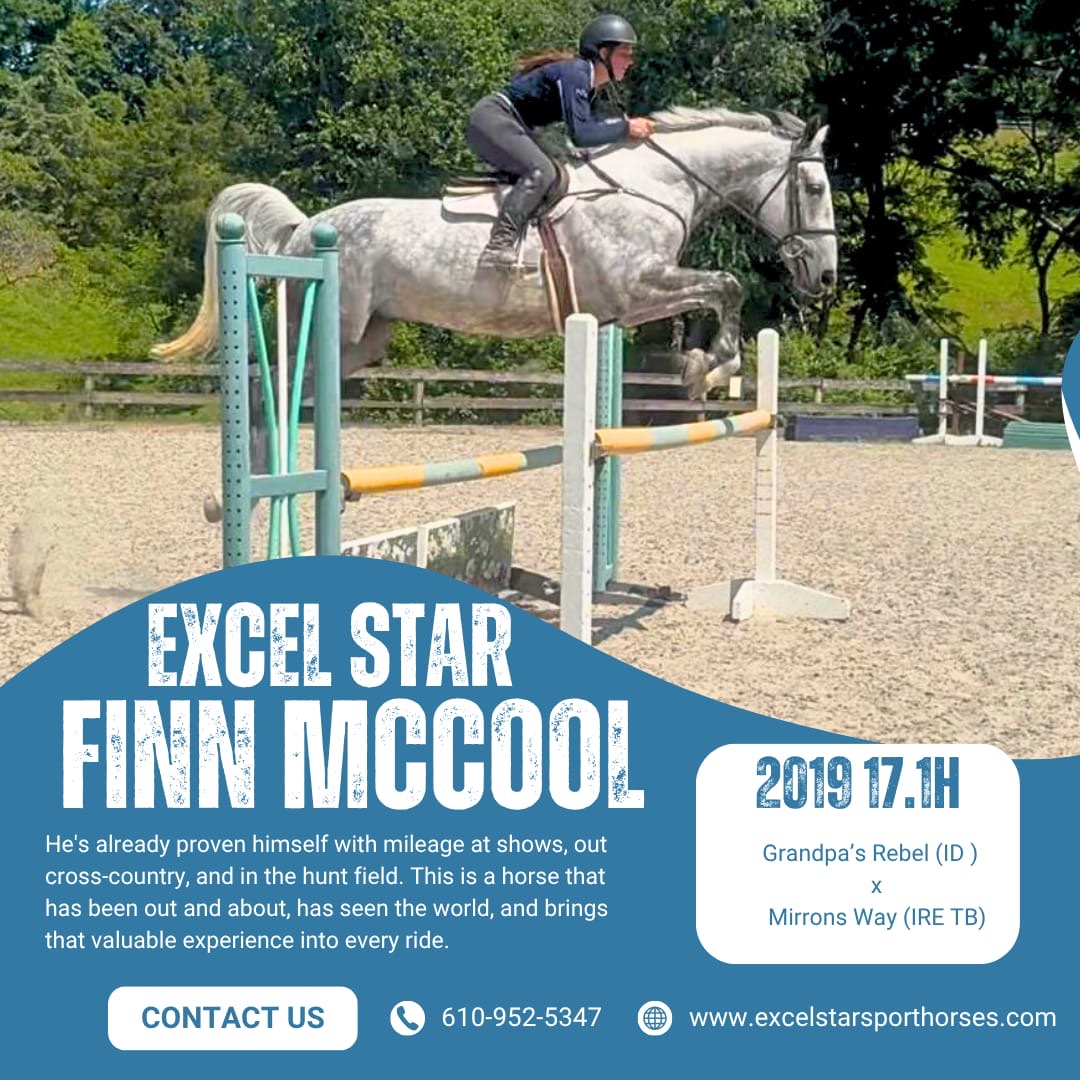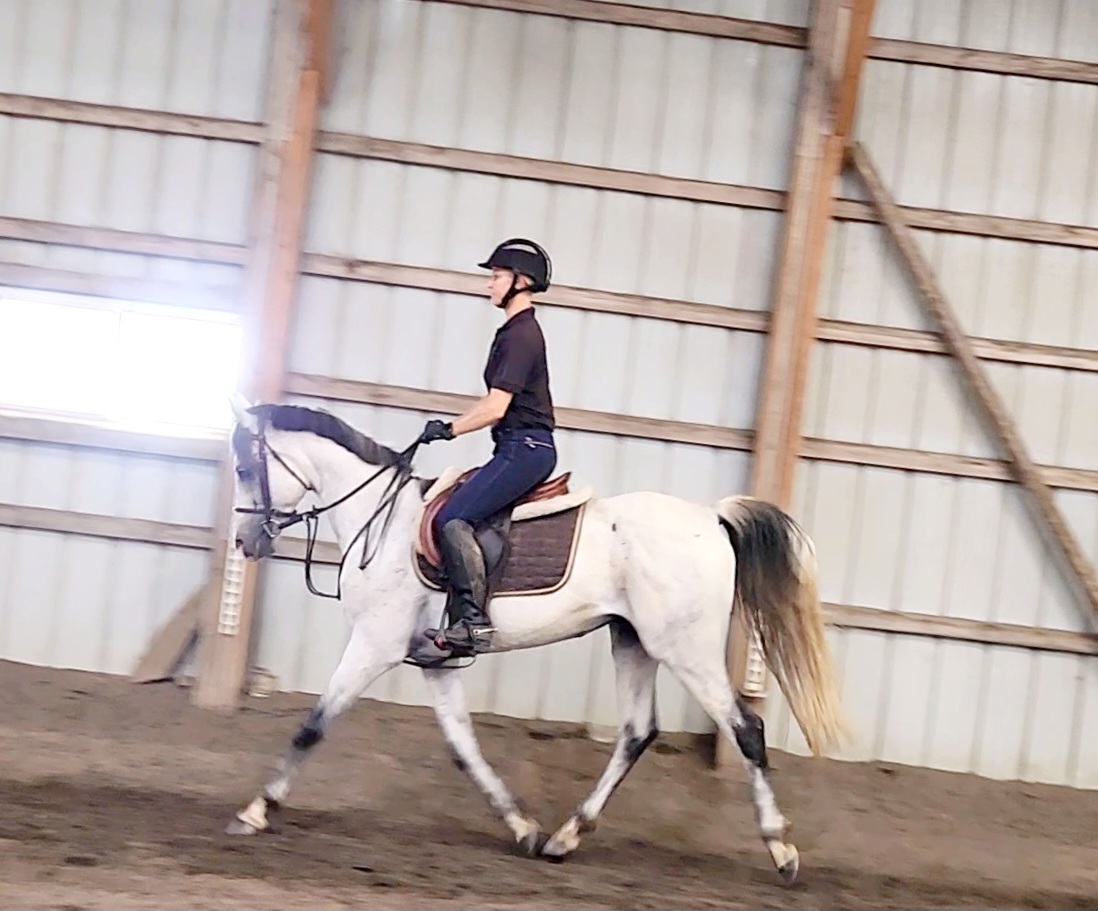
Unique prizes offered by Waredaca to its starter horse trial competitors. Photo by Holly Covey
For many riders, winning an event means the culmination of a dream. The importance of the achievement dwarfs the color of the ribbon.
And, to be truly fair, winning does mean you’ve done a great job and you and horse together figured it out. And even if you don’t end up at the top of the leaderboard, a really great effort should still stand for you as an achievement of note.
Last year, my very best event, I finished 9th, just out of the ribbons — but it was truly a great event where I made no mistakes, jumped double clear show jumping and cross country rounds over a course myself and my horse had never competed over before. In addition, it was the first event that my horse had stabled overnight at, too. There was no ribbon for that weekend, but I was thrilled with myself and with my horse because it just came together.
You may think that is all there is, but if you compete recognized USEA events, that is not all you gain. Because the USEA pulls out juniors and amateurs from open divisions, I actually placed as the third-highest placed amateur, and received USEA grading points for that placing. In addition, because the competition was a championship, the Area gave double points to any placing, and these points were enough to scoot my horse up the leaderboard on the Area II Year End Awards, too.
So while you may not get much more than a ribbon sometimes for placing at recognized events, bear in mind that the points you gain that are recorded do go down on your record and your horse’s record, and that is part of the entry fee you pay, too. Those rewards are important, and not always seen.
At a starter or unrecognized event, the prizes are even more fun. I attended an event in my area that has a wonderful promotion with a sponsoring feed company where kids get “bucks”, cute fake money, for things like “starting the event”, “completing all three phases”, and “picking up their dressage test”, and of course, winning a ribbon.
The little barn group I went with had most of the riders under 12 and when I marched back to the trailer after my competition was over with the bucks in hand they all figured out they had to ride well and finish the event to get their bucks, too.
(Here’s the program set up by Waredaca.)
Of course, it’s just for fun, but I like the incentives. Picking up a dressage test means you are interested in what the judge had to say about your performance and how to improve your riding and scores. Starting means you got up at 4 a.m. and got to the barn and got your pony on the trailer. Finishing means you didn’t stop trying and cry when your pony stopped at the ditch or black pipe, but stayed on, gave him a pop with your crop, and got the job done the second or third time.
These small victories should be rewarded, and mean something. Competing today as opposed to 20 or 30 years ago I think requires a bit more of a rider. The rules are definitely more complicated. The performance level expected is higher. Winning is harder. Placing is harder. Doing well is harder. So I’m for the rewards for the small things, which in the end, are really big things – or lead to the big things.
Unlike regular horse shows, eventing competitions base your performance on getting it right the first time – there are no additional rounds to perfect the course. In addition, dressage requires memorizing a pattern and displaying it for a judge. And finally you have to send your pony or horse down over a cross-country course that he has not seen and must jump at first asking – by you, the rider – without a trainer coaching you at the rail 15 feet away. I am in awe of a 10 year old that can do that! I couldn’t do it at that age!
Many, many Olympic medalists, USET team riders, international competitors and national champions have beloved memories of getting a clean round at Beginner Novice as a child rider, or finally remembering a dressage test without mistakes, or getting a recalcitrant pony over a nemesis ditch.
Those feats alone requires a dedication to purpose and a certain amount of self-criticism. These are hugely important concepts for young riders in particular to gain, and that is why eventing is so attractive for many families as a worthwhile youth sport. We all need to remember this. All of us, the professionals at the top of the sport, the owners of upper level horses like Tim and Nina Gardner who supported young rider Alexa Lapp with national champion event horse Cambalda, the officials, the judges, the organizers. Youth sport helps make good adults.
So if you are an organizer, a parent, or a supporter of the starter and unrecognized events, or interested in any other way — it’s worth pointing out that rewards in this sport are often intrinsic. Any time you’ve got a kid who placed well, even if they didn’t get into the ribbons, but overcame a difficulty or just made a day without mistakes — it’s to be celebrated, no matter what color the ribbon, or even if there is a ribbon. And if you’re in a position to offer awards, and contribute to youth competing in eventing, do it. It’s needed.
Go eventing.



















